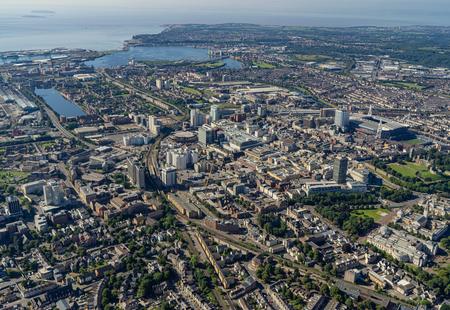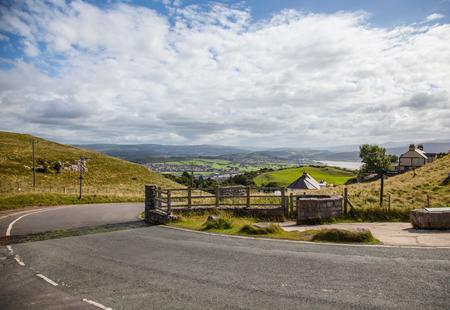Climate change, inequality, nature loss and economic shocks – an extensive, but not definitive list of ongoing global challenges.
They’re problems that states and regions are facing now. And they’re problems that they’ll face in the future.
The Welsh Government has taken strides to tackle these interconnected challenges head on.
In 2015, it passed the Wellbeing of Future Generation Act (WFG). It’s a forward-looking piece of legislation that requires all public bodies to consider the long-term impact of their decisions. This refers to the impact on people, looking at issues like poverty, health inequalities and climate change.
And the WFG delivers against its promises. We’ve explained a few of its unique and distinguishing features to show other states and regions how they can replicate this success.

The WFG is aligned to global best practice.
It’s uniquely linked to the United Nations Sustainable Development Goals (SDGs). Adopted in 2015, at the same time the WFG was passed, the 17 SDGs call for urgent action by all countries. They serve as a “shared blueprint or peace and prosperity for people and the planet, now and into the future” (United Nations).
The outcomes of the WFG have been directly and deliberately aligned to the SDGs. This means that government officials can use legislative frameworks already in place to achieve their just transition goals and ensure that their actions have a global focus.

There’s a strong focus on people.
The WFG has been successful in developing a just transition work programme in Wales because so much focus has been put on consulting and gaining buy-in from key stakeholders. Inclusion and collaboration underpins the WFG, allowing for effective participation and co-production.
Welsh trade unions were involved in discussions to factor in worker perspectives. NGOs, including Friends of the Earth, business and public sector perspectives have also been integral. To allow for even broader involvement and participation a call for evidence on a just transition was also undertaken.
Gaining these important perspectives has confirmed that the WFG provides a solid legislative foundation to integrate and implement a just transition across decision making processes in Wales.
The Welsh Government did a thorough stakeholder analysis to identify and reach these groups:
- Internal stakeholder analysis (within government): colleagues working on economy, poverty and social partnerships were consulted to gather their input.
- External stakeholder analysis (outside government): trade unions, social partnerships councils (members representing the Welsh Government, employers and worker representatives); community groups, academia and the public sector.
Going forward they hope to continue collaboration with stakeholders across society to build capacity so that the WFG reach all levels of society and a just transition can be planned effectively and consistently.

It’s all encompassing to meet the needs of all people.
Governance structures – local authorities, councils, boards and trusts – are subject to the provisions of the WFG. And therefore this provides a solid legislative foundation to guide the development of a consistent approach to a just transition across decision making processes of all Welsh public bodies.
It can do this by focusing on:
- Macro inclusion – integrating just transition principles in budgets and decarbonisation pathways to prevent unintended consequences and maximise any opportunities
- Sectors – assessing where, and in which sectors, just transition principles need to be prioritised and integrated to maximise any opportunities to improve wellbeing
- Individual policy development – weaving just transition principles into policymaking processes (for example, ETS industrial sector impacts and fuel poverty)

What we can learn from Wales.
There’s no need to reinvent the wheel when it comes to delivering a just transition. The Welsh Government has woven its approach across existing societal and governance structures. This has had two key benefits:
- It’s helped the government to gather insights on where just transition support is most needed
- It’s ensured that all relevant public bodies are informed, engaged and empowered to act
It means that all actions are aligned. So, while just transition approaches will be flexible and nuanced to reflect varying people needs, they all have a clear purpose. And are all working to a common goal.
As members of the Just Transition Taskforce, colleagues from the Welsh Government have been able to share more in-depth and unique insights on their methods with state and regional governments around the world.
For further reading see Just Transition to Net Zero: Wales Call for Evidence (gov.wales) and International approaches to a Just Transition | WCPP
